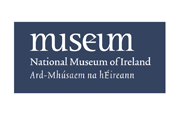There were four brothers of them in it. There was one brother of them who had a castle to the west of Clifden, on the brink of the sea. There was another brother of them who had another castle at Abhainn Ruibh (Owenriff River). And the third man of them, he had a castle at Ach-na Niuire (Aughnanure).
There was another man of them was poor; he had no castle at all, but he used to be going round amongst the other three.
They were raising tenths (tithes or rents) then, every one of the three, on every house that was within ten miles of them.
Two other brothers fighting
The poor brother said then to the brother that he used to be always along with, that he would put the two other brothers fighting. He came then, one day, to the man who had a castle at Owenriff River, and that brother said to him to sit down. He said that he would not. He asked him why he would not sit down. He said he could not sit down and his brother coming out of Clifden and his men with him “to kill you and your men.” “I never heard one word about it,” said that brother, “but indeed if he is coming, I’ll be ready before him.” He called on his men and told them to go to him. “How far shall we go?” says one of the men. “Until he meets ye,” said he.
Off went the poor brother then, and he came to Clifden, and that brother said to him to sit down. He said he would not. The other man asked him what was the reason he would not sit down. He said that he could not sit down and his brother coming out of Abhainn Ruibh and his men with him, “to kill you aid your men.”
“Well then,” said he, “if that is it, I’ll meet him.” He called his men, and told them to go until the other brother might meet them.
Could never be lit as wicks
The place where the two armies met one another was the place they call Móinín-an-Fheadara. The battle began between them there, and they were killed on each side. That put an end to the Flaherties of Abhainn Ruibh. The rushes that grew in the place where that battle was fought could never be lit as wicks from that day until the present day. There only remained in it then the O’Flaherty who was in Ach-na-Niuire.
There was a man of the Lees, in a place they call the Pollach, and he was not paying the tenths to O’Flaherty. Then O’Flaherty sent his son to O’Lee. The son said that his father had sent him to ask for the tenths. “Come in,” said O’Lee, “and I’ll give them to you.” When O’Flaherty went in to O’Lee, O’Lee cut his head off.
O’Lee had three sons there. He asked the eldest son would he go to the castle with the O’Flaherty’s head. He said he would not. He asked the second son, and he said the same thing, that he would not. He asked the third son, and he said that he would go there.
His son’s head!
He took with him a horse, and O’Flaherty’s head, tied up in a towel, and he never stopped until he came to the castle and laid it on the table. He told the girl to say to her master that this was a present which his father sent him. The girl went into the inner room and told O’Flaherty that O’Lee had sent him a present. When O’Flaherty came into the room O’Lee was gone, and, when he opened the towel, what was in it but his son’s head!
He brought along with him all his army then, until he came to the Pollach, and when O’Lee perceived him coming he himself and his three sons ran away, and when the old man was getting tired he told his three sons to leave him, and that he himself would stand his ground as he was not able to go any further.
There were twelve men after him, and the eldest son said that he would stand himself as long as his father would stand. The four of them stood then. “Now,” said O’Lee, “go ye back through them, and knock, each one of you, a man out of them, and when ye come back through them again knock each one another man out of them, and then there will be only man against man.”
They killed the twelve
The O’Lees stood then, and they did the thing their father told them. They killed the twelve, and O’Flaherty among them. No tenth was raised in that country ever since. O’Lees people never paid one penny of rent to any man since, and they have the land themselves free ever since. O’Flaherty had only one son then, and he was but a child. When the woman who was taking care of the child heard that the O’Lees were coming to the castle, she goes away, and takes the child with her, on her back, because the O’Lees people would kill the child if they got hold of it. The woman went away then and she took him with her, to Ath Cinn (Headford). She reared him then as well as she was able until he was eighteen years of age.
And there was a “pattern” in Moycullen, and O’Flaherty came there. He was looking for satisfaction from O’Lee. O’Lee was inside in a tent, and O’Flaherty found out that he was there. O’Flaherty came into the tent, and when O’Lee saw him, “Come up,” says he to him, “and eat food with the knife that killed your father.”
O’Flaherty seized the knife and put it through O’Lee’s heart, and killed him. He left the country then and was never seen since, as it had come to pass that he had satisfaction from O’Lee.









No Comments
Add a comment about this page